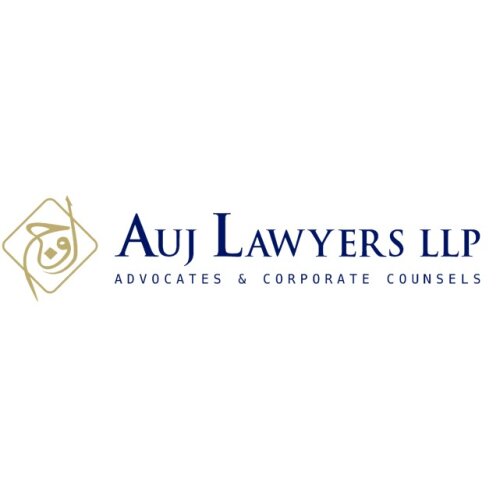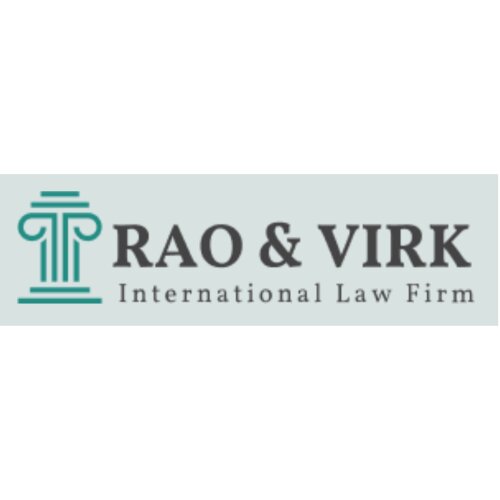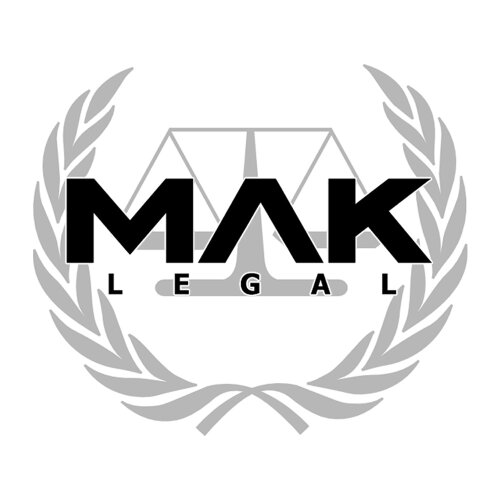Best Art & Cultural Property Law Lawyers in Lahore
Share your needs with us, get contacted by law firms.
Free. Takes 2 min.
List of the best lawyers in Lahore, Pakistan
About Art & Cultural Property Law in Lahore, Pakistan
Art & Cultural Property Law in Lahore, Pakistan encompasses legal frameworks that protect the nation's cultural heritage, art pieces, and cultural properties from illicit trade, unauthorized reproduction, and destruction. This area of law is vital for preserving the rich history and cultural identity of Lahore, a city known for its vibrant artistic community and historical significance. Laws in this domain are designed to safeguard both tangible and intangible cultural assets, including artifacts, manuscripts, traditional art forms, and more.
Why You May Need a Lawyer
There are several scenarios where individuals or organizations may require legal assistance in Art & Cultural Property Law:
- Disputes over the ownership or provenance of art pieces.
- Legal actions related to art theft or illegal export of cultural property.
- Issues surrounding the reproduction and commercialization of traditional art forms.
- Negotiations for the acquisition or donation of cultural artifacts to museums or galleries.
- Legal protection against forgery and counterfeit art concerns.
Local Laws Overview
Key aspects of local laws relevant to Art & Cultural Property Law in Lahore include:
- The Antiquities Act, 1975: This law provides for the protection, preservation, and prohibition against the illicit trafficking of historical monuments and antiquities.
- The Pakistan Penal Code: It includes provisions that criminalize the theft and wrongful possession of cultural property.
- Intellectual Property Laws: These laws protect the rights of artists and creators over their original works, including copyrights on artistic creations.
- Customs Regulations: Enforcement of policies that prevent the illegal import and export of cultural goods.
Frequently Asked Questions
What is considered cultural property in Lahore, Pakistan?
Cultural property refers to items of significance to the cultural heritage of a country, including historical artifacts, works of art, manuscripts, architectural monuments, and other objects of cultural importance.
How can I determine the provenance of an art piece?
Determining provenance involves researching the history of an art piece, including previous ownership and its legal documentation. Consulting with experts or legal professionals specializing in art law may help in this process.
What should I do if I own an artifact that may be considered an antiquity?
If you possess an object that could be an antiquity, it is advisable to consult with a lawyer or expert in cultural property law to ensure compliance with the Antiquities Act and relevant regulations.
Are there laws against the reproduction of traditional art in Lahore?
Yes, there are intellectual property laws that protect the originality and cultural integrity of traditional art forms. Unauthorized reproduction can result in legal consequences.
What legal steps should I take if I discover an art piece I own is counterfeit?
If you suspect an art piece is counterfeit, you should seek legal counsel to explore options for rescission of sale, obtaining compensation, and pursuing any legal remedies available under fraud-related statutes.
How do I legally acquire cultural property in Lahore?
To legally acquire cultural property, ensure the transaction complies with local and international laws regarding art sales, and provenance is thoroughly verified. Legal guidance can help navigate these complexities.
Can art stolen from Lahore be recovered internationally?
Yes, international cooperation and treaties like the UNESCO Conventions can facilitate the recovery of stolen cultural property. Legal professionals specializing in art recovery can assist in these processes.
Is there government support for artists in protecting their work?
Yes, various governmental bodies provide support and resources for artists to protect their work, including copyright registration services and legal assistance programs.
What penalties exist for illegal export of cultural property?
Penalties for illegal export can include fines, imprisonment, and the confiscation of the item. The severity of penalties depends on specific legal circumstances of each case.
How are intellectual property rights enforced in Lahore?
Intellectual property rights are enforced through the legal system, where violations can be addressed through litigation, seeking damages, injunctions, and other legal remedies.
Additional Resources
Here are some resources and organizations that can assist with Art & Cultural Property Law in Lahore:
- Department of Archaeology and Museums (DoAM): Oversees the protection and preservation of cultural heritage in Pakistan.
- The Intellectual Property Organization of Pakistan (IPO-Pakistan): Responsible for the safeguarding of intellectual property rights across the country.
- UNESCO: Provides guidelines and support for international cultural property conventions.
- Lahore Museum: Offers expertise and potential partnerships for issues related to cultural property law.
Next Steps
If you require legal assistance in Art & Cultural Property Law, consider the following steps:
- Consult with a legal professional specialized in cultural property law to understand your rights and obligations.
- Research local law firms or legal aid services that have expertise in this field.
- Prepare any documentation pertinent to your issue, such as proof of ownership or provenance records.
- Attend workshops or seminars on cultural property law to enhance your understanding and capabilities in managing art-related matters.
- Engage with local cultural institutions or communities for additional guidance and networking opportunities.
Lawzana helps you find the best lawyers and law firms in Lahore through a curated and pre-screened list of qualified legal professionals. Our platform offers rankings and detailed profiles of attorneys and law firms, allowing you to compare based on practice areas, including Art & Cultural Property Law, experience, and client feedback.
Each profile includes a description of the firm's areas of practice, client reviews, team members and partners, year of establishment, spoken languages, office locations, contact information, social media presence, and any published articles or resources. Most firms on our platform speak English and are experienced in both local and international legal matters.
Get a quote from top-rated law firms in Lahore, Pakistan — quickly, securely, and without unnecessary hassle.
Disclaimer:
The information provided on this page is for general informational purposes only and does not constitute legal advice. While we strive to ensure the accuracy and relevance of the content, legal information may change over time, and interpretations of the law can vary. You should always consult with a qualified legal professional for advice specific to your situation.
We disclaim all liability for actions taken or not taken based on the content of this page. If you believe any information is incorrect or outdated, please contact us, and we will review and update it where appropriate.

















